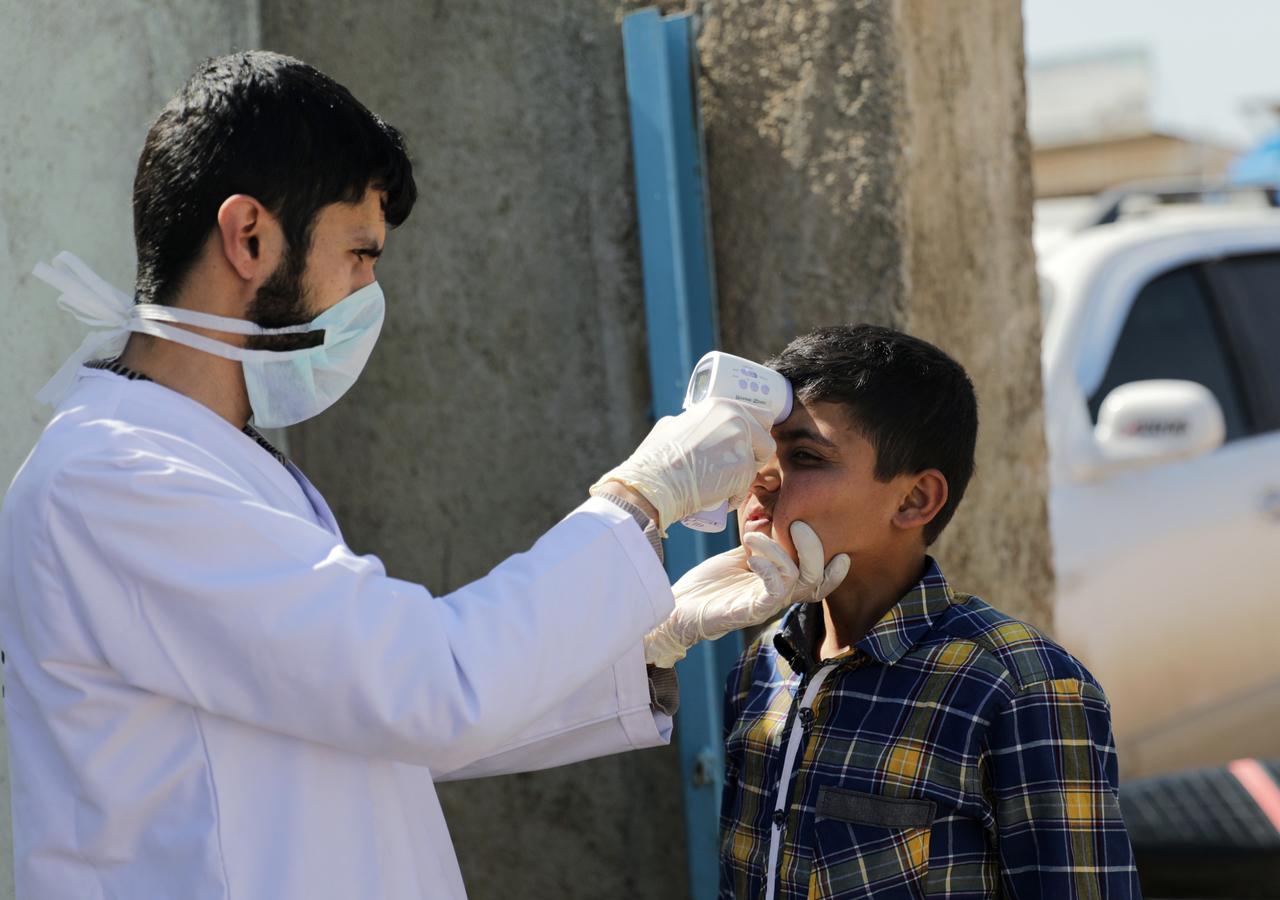
AMMAN (Reuters) — War-ravaged Syria on Sunday confirmed its first case of the coronavirus after weeks of rejecting opposition allegations that the disease had already reached a country with a wrecked health system and thousands of Iranian-backed militias and Shia pilgrims.
Health Minister Nizar al-Yaziji told state media “necessary measures” had been taken regarding the 20-year-old woman, who he said would be quarantined for 14 days and given medical checks.
There have been unconfirmed reports in recent weeks of coronavirus cases in Syria, whose health system, housing and infrastructure have been ravaged by nine years of civil war, but the authorities have denied any outbreak or cover-up.
The virus has been spreading in neighbouring countries.
U.N. officials and humanitarian workers fear a major outbreak in Syria could be particularly catastrophic.
Damascus announced a ban on public transport on Sunday as it stepped up a lockdown introduced in recent days, including the closure of schools, parks, restaurants and various public institutions, as well as calling off army conscription.
President Bashar al Assad issued a prisoner amnesty on Sunday, according to state media, which said it was a move to relieve congestion that risked the spread of the virus.
In an unprecedented move, bakeries across the country would no longer open for citizens and bread would be delivered by distributors to homes to prevent mingling by customers during hours waiting in long queues, state media said.
Medics say the country is also vulnerable with thousands of Iranian-backed militias fighting alongside Assad’s forces, who maintain a strong presence in Syria’s big cities and have their headquarters in the Damascus Shi’ite suburb of Sayeda Zainab.
Thousands of Shia pilgrims from Iran also visit Damascus.
Iran, one of the countries most affected by the pandemic outside China, is Syria’s main regional ally and operates military and civilian flights that bring the militia fighters into the country.
Iran’s Mahan Air still has regular flights from Tehran to Damascus, according to Western diplomats tracking Syria, even though other Syrian flights have been suspended.
Iranian-backed militias also still enter Syria using the AlBukamal border crossing with Iraq, where the virus is spreading, according to local residents and Western intelligence sources.
The army’s general command announced on Saturday it had raised the level of preparedness in military hospitals and gave orders to minimise gatherings, including military sports activities or any that take place in closed areas.
“We have taken a number of steps … to protect our sons in their residences in military units and formations and order the use of gloves and masks,” an army statement said.
Military defectors say a number of senior officers had taken leave and in some units commanders have given orders to avoid mingling with Iranian-backed militias seen as higher risk of spreading the virus.
Medics in the opposition-held northwest also fear the coronavirus could spread quickly in crowded camps for tens of thousands of displaced Syrians who fled months of relentless Russian-backed bombing of rebel held areas.
U.S.-backed Kurdish led forces in northwestern Syria and Turkey-backed opposition groups also closed crossings for fear the infection could come from government-held areas.
Reporting by Suleiman Al-Khalidi; Editing by Kevin Liffey, David Holmes and Daniel Wallis
Image: A health worker tests an internally displaced Syrian boy as part of security measures to avoid coronavirus, in Azaz, Syria, March 11, 2020. REUTERS/Khalil Ashawi




